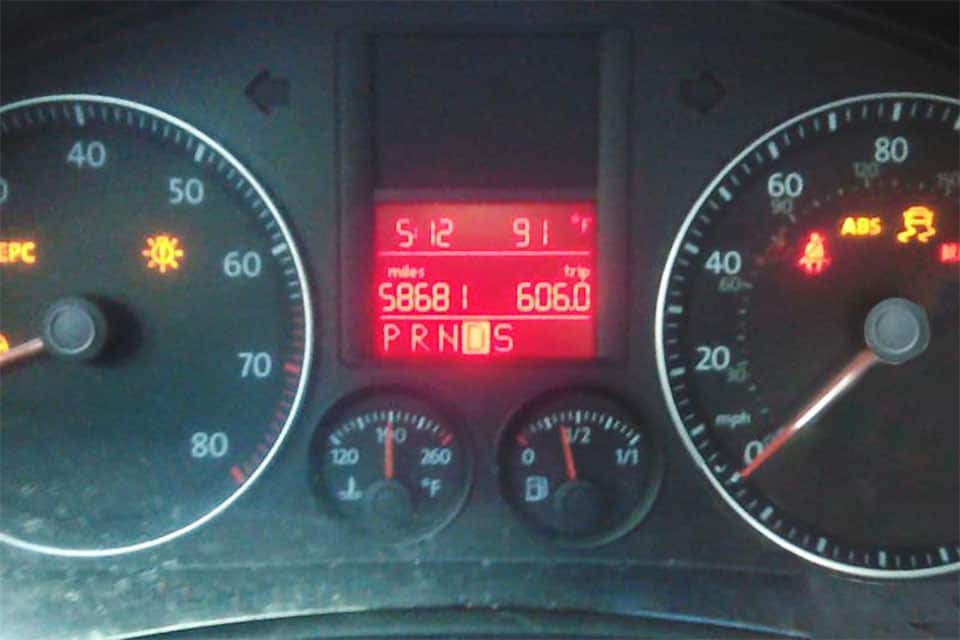Antilock Braking System (ABS) Failure. A BS Problem if We've Ever Seen One.
- Errors inside Volkswagen's anti-lock braking ECU can cause a sudden failure of the safety system.
- Replacing the ABS module can be very expensive because of where it's installed and the labor to remove it.

When your car's ABS fails, there's a sudden loss of traction and stability control. There's a jarring display of warning lights on your dashboard that makes Times Square cringe. And then, of course, there's the crippling fear as your car slides out of control.
What is ABS? ∞
An anti-lock braking system (ABS) is designed to help maintain traction between your wheels and the road. It does this by replacing the practice of "cadence braking" or pumping the brake pedal to come to a stop.
Ever hear the term "pump the brakes?" Of course you have. Every dad and high school math teacher has used the phrase excessively over the last half-century. Pumping the brakes is very important — it brings the car to a stop without locking up the wheels. As long as your wheels are spinning, you maintain control. And we all like control.
ABS pumps the brakes for you automatically, and you probably didn't even notice because it's much faster than you ever could do.
Modern ABS also uses employs other electronically-aided systems meant to make driving safer, such as emergency braking assist, traction control, and electronic stability control (ESC).
All that is to say, ABS is meant to keep you safe. But it comes at a cost – complicated electronics and code that are subject to failure.
Volkswagen ABS Failure ∞
ABS has a central electronic control unit (ECU) that controls and monitors the system. It'll monitor data from wheel speed sensors all while controlling hydraulic valves inside the brake lines. It's a beautiful thing when it works.
But if anything goes wrong (in any part of the system), your ABS will hurl some lights at you and go full out fainting goat.

And it never seems to happen at a good time, like this story from a 2009 GTI owner:
"Without notice, traffic suddenly slowed to approximately 40 mph, causing me to hit my brakes hard. The ABS system engaged and my car was thrown sideways off the road at approximately 70 mph. I pulled the car back left, causing vehicles in the left lane to swerve to miss hitting me."
"The ABS and brake light illuminated on my car, indicating a failure however, a dummy could figure out the brakes were not working. There is no doubt in my mind, had my car been thrown left when I hit the brakes I would have been smeared by on coming traffic, likely a fatality."
Many VW vehicles – particularly those from the 2009 model year – are seeing their ABS fail early on in the vehicle's life.
The Repairs are Costly ∞
And the repairs are complicated and expensive. A new ABS module isn't much, but the part is located in the middle of the braking system and requires a lot of disassembly to replace. Plus there's all the scanners and oh, yeah the "re-coding fee" to integrate the module into your car's computer.
Many owners are getting quoted $2000 to $2800 without any guarantee the new ABS just won't do the same thing.